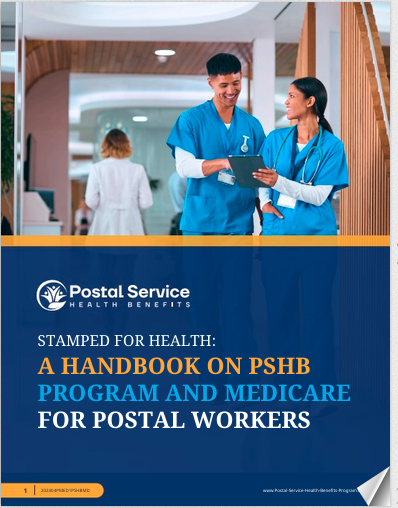Key Takeaways
-
While Medicare Part C (Medicare Advantage) plans appear to offer all-in-one coverage, they often come with network restrictions, cost-sharing, and exclusions that are not obvious upfront.
-
If you’re a Postal Service Health Benefits (PSHB) enrollee coordinating coverage with Medicare, you must understand what these plans don’t include before making a decision.
The Promise vs. the Reality of Medicare Part C
Medicare Part C plans are marketed as comprehensive alternatives to Original Medicare. They often include hospital (Part A), medical (Part B), and sometimes prescription drug coverage (Part D), along with a few extras. On the surface, they seem to offer convenience and simplicity. But in 2025, many of these plans still carry significant tradeoffs.
If you’re enrolled in the Postal Service Health Benefits (PSHB) program, you may be weighing your Medicare options carefully. It’s critical to understand what you don’t get in a typical Medicare Advantage plan, even if it’s labeled as all-in-one.
Not Every Hospital or Doctor Is Included
Medicare Advantage plans are run by private insurance companies. Unlike Original Medicare, which lets you see any provider that accepts Medicare, most Medicare Part C plans use restricted provider networks.
-
In-network restrictions: You often need to see doctors and hospitals that are part of the plan’s contracted network. Going out-of-network usually means higher costs, or no coverage at all unless it’s an emergency.
-
Referrals and authorizations: Many plans require referrals for specialists and prior authorization for tests or procedures.
-
Regional limitations: Some plans operate regionally, which can be problematic if you travel often or move seasonally.
As a PSHB enrollee, this can cause friction when your preferred medical providers aren’t in the plan’s network, even if they are included under your federal benefits.
Benefits May Look Generous But Come with Tradeoffs
Medicare Advantage plans often include extra perks like dental, vision, hearing, fitness programs, or transportation benefits. However, the details matter.
-
Dental and vision coverage: These benefits are often limited to routine exams or preventive care, with strict annual caps.
-
Hearing aids: Some plans offer discounts but not full coverage.
-
Over-the-counter allowances: While included in some plans, the spending limits are often low and tied to specific retailers.
For PSHB members, these benefits may seem attractive, but they may not replace the depth of coverage you already receive through your government-sponsored plan.
Prescription Drug Coverage Isn’t Always Standard
Not all Medicare Part C plans include prescription drug coverage. Those that do often bundle it into the same plan, but there are key considerations:
-
Formularies vary: Each plan has its own list of covered drugs. Your medications may not be included or may be placed in a higher cost tier.
-
Pharmacy networks: You may be required to use specific pharmacies.
-
Coverage rules: Quantity limits, step therapy, and prior authorization may apply.
If you’re used to the structure of your PSHB drug coverage, Medicare Advantage drug plans may feel more restrictive.
Cost Sharing Can Be Unpredictable
Many assume Medicare Part C plans save money, but the truth is more nuanced. These plans often use a pay-as-you-go structure, where you’re responsible for copayments and coinsurance for each service.
-
Deductibles: Some plans have separate medical and drug deductibles.
-
Copayments: You may owe a copayment each time you see a primary doctor, specialist, or visit urgent care.
-
Coinsurance: For more expensive services like outpatient surgery or hospital stays, coinsurance rates of 20% or more can apply.
-
Out-of-pocket maximums: In 2025, Medicare Advantage plans must include an annual in-network out-of-pocket maximum, but it can be as high as $9,350. This limit does not include out-of-network costs in most cases.
Even if you stay within the plan’s network, these costs can add up quickly, especially if you have chronic conditions or require frequent care.
Out-of-Network and Emergency Coverage Have Limits
If you’re traveling or living part of the year in a different state, your Medicare Advantage plan may not follow you.
-
Emergency care: Plans must cover emergency care nationwide, but coverage beyond emergencies can be inconsistent.
-
Urgent care and follow-ups: These services may be limited to your plan’s network area unless prior approval is obtained.
-
Extended stays: If you need care while spending weeks or months outside your plan’s service area, you may find yourself without full coverage.
This can be especially important for PSHB members who expect the flexibility they’re used to under federal health benefits.
You Must Still Pay the Part B Premium
Regardless of whether you enroll in Medicare Advantage, you are still responsible for your monthly Medicare Part B premium. In 2025, the standard premium is $185 per month. Some higher-income enrollees may pay more under the Income-Related Monthly Adjustment Amount (IRMAA).
Some Medicare Advantage plans offer partial reimbursement for this cost, but not all. And even when they do, the amount rarely covers the full premium.
PSHB enrollees coordinating with Medicare Part B may be eligible for cost-sharing advantages through their postal health plan, which could result in better value than what a standalone Medicare Advantage plan offers.
Prior Authorization Can Delay or Deny Care
Prior authorization is a common feature of Medicare Part C plans. This process requires your doctor to get the plan’s approval before proceeding with specific tests, procedures, or treatments.
-
Delays in care: Getting approval can take days or even weeks.
-
Denials: If the plan disagrees with your doctor’s recommendation, they can deny coverage, leaving you to pay the full cost or appeal.
-
Medical necessity: Plans often use their own criteria to determine whether care is necessary.
This level of gatekeeping is less common in PSHB or Original Medicare, where prior authorization requirements are typically more limited.
Enrollment and Disenrollment Rules Are Rigid
Once you join a Medicare Advantage plan, you’re generally locked in for the calendar year unless you qualify for a Special Enrollment Period (SEP).
-
Open Enrollment Period: Runs from October 15 to December 7 annually. This is when you can switch plans or return to Original Medicare.
-
Medicare Advantage Open Enrollment: From January 1 to March 31, you can switch to another Advantage plan or return to Original Medicare if you’re already in a Medicare Advantage plan.
Outside of these windows, you may be stuck with the plan’s limitations, including network restrictions, prior authorizations, or higher costs than expected.
For PSHB members who value year-round flexibility, this could feel restrictive.
PSHB Coordination with Medicare Offers Advantages
For many Postal retirees and Medicare-eligible annuitants, keeping your PSHB coverage and enrolling in Medicare Part B provides robust, layered protection. This dual enrollment model often means:
-
Reduced cost sharing: Many PSHB plans waive deductibles or copayments when combined with Medicare.
-
Lower out-of-pocket risk: You may avoid the high MOOP limits of Medicare Advantage plans.
-
Prescription drug integration: PSHB plans include Medicare Part D Employer Group Waiver Plans (EGWP) for seamless drug coverage.
-
National networks: You’re not restricted to a regional network.
This model offers more predictability and access compared to many Medicare Part C plans, especially when you account for long-term care planning and multi-state flexibility.
What You Should Do Before Enrolling in Part C
Before you commit to a Medicare Advantage plan, make sure you:
-
Compare networks: Check if your current providers participate in the plan.
-
Review the Summary of Benefits: Pay attention to cost-sharing, coverage exclusions, and referral requirements.
-
Understand the drug formulary: Ensure your medications are covered and compare copayments.
-
Examine prior authorization policies: Know which services require approval.
-
Ask about out-of-network policies: Especially if you travel or live in multiple states.
-
Evaluate your PSHB coordination options: In many cases, maintaining your PSHB coverage with Medicare Part B offers more protection.
Think Long-Term When Choosing a Health Plan
Your choice isn’t just about the next few months. It affects your long-term health access, affordability, and convenience.
-
If you have chronic health conditions, unpredictable costs and care delays can add stress.
-
If you split time between locations, network limitations can reduce your access.
-
If you value stability, PSHB paired with Original Medicare offers wider access and fewer surprises.
Make sure you’re not giving up essential benefits just for the appearance of convenience.
Get Answers Before You Decide
Choosing a Medicare Advantage plan is not a one-size-fits-all decision, especially if you’re a PSHB enrollee. Many retirees assume Part C will replace their federal coverage, but it often doesn’t deliver the same reliability, especially when you need care the most.
Before making a change, speak with a licensed agent listed on this website. They can help you assess whether coordinating your Medicare enrollment with your PSHB benefits will give you better value and broader access.






